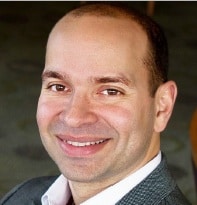Another Nail In The Coffin For The High Carb Diet
Anyone who reads my articles and ebooks knows I am not a fan of high carb diets, especially if it’s a low fat low protein diet combined with a high carbohydrate intake. Some interesting new research supports a lower carb intake.
OK, it’s done on mice, and early research, but interesting and another potential nail in the coffin of the high carb diet. Of course, a drug to block XBP1 (see article below) will be in development, when a low carb diet may work just as well -at least in some people. Interesting information and research to keep an eye on:
ScienceDaily (Jun. 13, 2008) — Researchers have discovered an unknown regulator of fat and cholesterol production in the liver of mice, a significant finding that could lead to new therapies for lowering unhealthy blood levels of cholesterol and fats.
The team led by scientists from the Harvard School of Public Health (HSPH) showed how this might work in an animal model, demonstrating that turning off the regulatory molecule — known as XBP1 — dramatically reduced blood levels of cholesterol and triglyceride fats. Importantly, there were no apparent adverse effects on the liver.
Therefore, “XBP1 may be an attractive drug target for treating dyslipidemias [excess fats in the blood],” said Laurie Glimcher, professor of immunology in the Department of Immunology and Infectious Diseases at HSPH. She is senior author of a new report in the journal Science. She said she and her colleagues are working with collaborators at the Broad Institute of MIT and Harvard to explore strategies for inhibiting XBP1 activity that could be applicable to humans.
“A key finding is that the liver in the mice lacking XBP1 seems to be perfectly normal, with minor effect on normal protein synthesis,” Glimcher added. “It is a very selective effect in lowering cholesterol and triglyceride production.”
The researchers discovered that XBP1, a transcription factor that governs gene expression, is activated by the ingestion of a high carbohydrate diet. XBP1 then turns on genes for enzymes that cause the liver to manufacture fat and fat-like substances, which are transported in the blood to fat tissue for storage. Excess amounts of these compounds — cholesterol and triglycerides — in the bloodstream can be dangerous, leading to heart disease and increased risk of strokes.
The discovery of XBP1’s role in manufacturing fats was a surprise to Glimcher and her co-workers, who include Ann-Hwee Lee, research scientist at HSPH, Erez Scapa, PhD, and David Cohen, MD, PhD. Lee is first author of the publication. Scapa and Cohen are affiliated with Harvard Medical School and Brigham and Women’s Hospital.
The molecule had been discovered by Glimcher two decades ago when she was searching for regulators of genes in the Major Histocompatiblity Complex, or MHC, a group of proteins that enables the immune system to distinguish between “self” and foreign substances in the body.
More recently, she and others characterized the function of XBP1 as a coordinator of an emergency response that cells use to survive when they are threatened by the stress of misfolded proteins. The survival strategy is known as the Unfolded Protein Response, or UPR. In addition, XBP1 is required for the normal development of the fetus, including the liver, and mice lacking XBP1 do not survive to birth.
So what is the role of XBP1 in the adult liver, the scientists wondered. Lee and colleagues developed a mouse model in which XBP1 functioned normally during fetal development but could be inactivated at will in the adult. To their surprise, the researchers found that knocking out XBP1 in adult rodents had no obvious abnormalities — nor was there any evidence of damage to the liver.
What they did observe, however, was a dramatic decrease of cholesterol, triglycerides and free fatty acids in the XBP1-knockout mice compared with normal controls. Moreover, the lack of XBP1 almost entirely eliminated the “bad” LDL cholesterol in the bloodstream. Concerned that the triglycerides might be accumulating in the liver instead — a condition in humans called “fatty liver” — the researchers found this was not the case, indicating that the manufacture of triglycerides in the liver was shut down.
When individuals eat excess carbohydrates, their bodies convert surplus carbohydrates into triglycerides to store them in fat tissue, which may be used as an energy source when food intake is limited. This lipid synthesis process occurs in the liver and is dynamically controlled depending on nutritional condition. XBP1, activated by a high-carbohydrate diet that strongly promotes lipid synthesis in the liver, induces several critical enzymes governing this process.
The Glimcher team concluded that XBP1 has a distinct role in generating lipids in the liver when stimulated by a high-carbohydrate diet and that this role is not connected in any way with its function as a regulator of the unfolded protein response. Because XBP1 acts in such a selective way on the liver’s lipid-making mechanism, the researchers are eager to determine whether drugs targeted to the molecule have a future in treating individuals with high blood levels of triglycerides and cholesterol.
Elevated levels of triglycerides and LDL cholesterol are key features of metabolic syndrome, which confers high risk of type 2 diabetes and atherosclerosis. The widely used drugs known as statins reduce blood cholesterol by inhibiting a key enzyme for its synthesis in the liver; they lower the risk of atherosclerosis. It appears that XBP1 controls the biosynthesis pathways for both triglycerides and cholesterol. The researchers hope that compounds that block the XBP1 pathway could lower both triglycerides and cholesterol and thereby help prevent diabetes and atherosclerosis.
“We don’t yet know whether blocking the XBP1 pathway will be better than the statins, which are very good drugs but have side effects like all drugs do,” Glimcher said. “But it is a different pathway.”
This study was supported by the National Institutes of Health and an Ellison Medical Foundation grant.
Will Brink is the owner of the Brinkzone Blog. Will has over 30 years experience as a respected author, columnist and consultant, to the supplement, fitness, bodybuilding, and weight loss industry and has been extensively published. Will graduated from Harvard University with a concentration in the natural sciences, and is a consultant to major supplement, dairy, and pharmaceutical companies.
His often ground breaking articles can be found in publications such as Lets Live, Muscle Media 2000, MuscleMag International, The Life Extension Magazine, Muscle n Fitness, Inside Karate, Exercise For Men Only, Body International, Power, Oxygen, Penthouse, Women’s World and The Townsend Letter For Doctors.
He’s also been published in peer reviewed journals.
Will is the author of the popular e-books, both accompanied by private members forum access , Bodybuilding Revealed & Fat Loss Revealed.
You can also buy Will’s other books on Amazon, Apple iBook, and Barnes and Noble.







I’m gonna play “Devil’s Advocate” here for a moment: simply because I think a distinction can be made between “excess carbohydrates” and a “high carb diet” – which is presumably a maintenance or reduced calorie diet that contains over 50% of total calories from carbohydrates.
Now, I agree that reduced carb diets are superior for achieving an optimal body composition (both in terms of metabolic advantage AND compliance). But it cannot be denied that weight loss, and sometimes substantial weight loss, as well as improvements in clinical markers of disease risk, can also be achieved via “high carb diets.” The Ornish diet is a case in point. You also have to take activity into account: endurance athletes, for example, thrive on high carb diets.
Thus, the type of carbs, structure of the total diet, and overall energy balance also need to be taken into account. “High carb” and “excess carb” aren’t quite the same thing, although this distinction is blurred in the article.
They are always looking for drug solutions. Who knows what side effects will happen when they find one. I was quite alarmed when they said they could eliminate LDL cholersterol. Don’t they know it is essential for body function? They seem obsessed by reducing cholesterol whatever the cost. Although high cholesterol might be a marker for heart disease, no-one has yet proved that reducing it improves the situation. My car has a temperature guage and when something is wrong, it goes above normal. I can fix this with a peg so that it never registers above normal. Is’nt reducing cholesterol like that?
What the researchers in the article describe is what the body does with excess carbohydrate. The liver converts them to tryglycerides, transports them in “cholersterol” and stores them in adipose tissue for later use. The answer is not to eat more calories than you burn off. All the carbs (and fat) are then used for energy. Using a low carb, high fat diet just means that the fat goes straight to fat stores without going through this pathway. It is just more difficult to over-eat on a high fat diet.
The effectiveness of statins rests on their ability to inhibit inflation in people with pre-extisting heart disease (artherosclerosis). If you don’t have heart disease, the use of statins is at least questionable, but possibly dangerous. (A friend of mine thought that the lower the cholersterol the better, bought stains OTC and ended up in hospital seriously debilitated). Doctors assume that if your cholesterol levels are above normal, that you must have artherosclerosis, which may not be the case. In any event, statins reduce serum cholesterol and are the peg that blocks the temperature guage. Statins work by blocking the action of the enzyme HMG CoA reductase, also necessary for the production of co-enzyme Q10. Lack of Q10 causes energy loss, muscle cramps and in extreme conditions heart failure. Anyone willing to take a statin should also supplement Q10 – unless the powers that be have taken this option away from us.
Is High cholesterol simply caused by over eating? preposterous.
At last, some vindication.
I find two things interesting in this article.
First, is more proof that low carb diets have some validity. I have long known that restricting carbs is a way of lowering triglycerides. I’ve had numbers over 1200 eating “properly” and taking my meds, which were killers. Since finding Atkins I’ve driven my numbers to the basement. Not that my doctors are happy. They still want to push pills at me.
Second is that we’re still talking about finding a pill to fix what could probably be fixed at the dietary level. The big food companies and the pharmicutical companies have a clear stake in us not eating correctly. Money. Come to think of it neither do doctors.
This study is refreshing. Just wish it could get into the hands of doctors treating patients with dangerous and expensive drugs.
Who would want to go on a uncomfortable diet ,anyone?. Eat whenever you wnna, just don’t forget to keep working out!
Thanks mate. Good blog you got here. Have some extra sites to point to with more info?
Should i link up to this, through my url page? I’m going to collect as much sources of details as i am able.